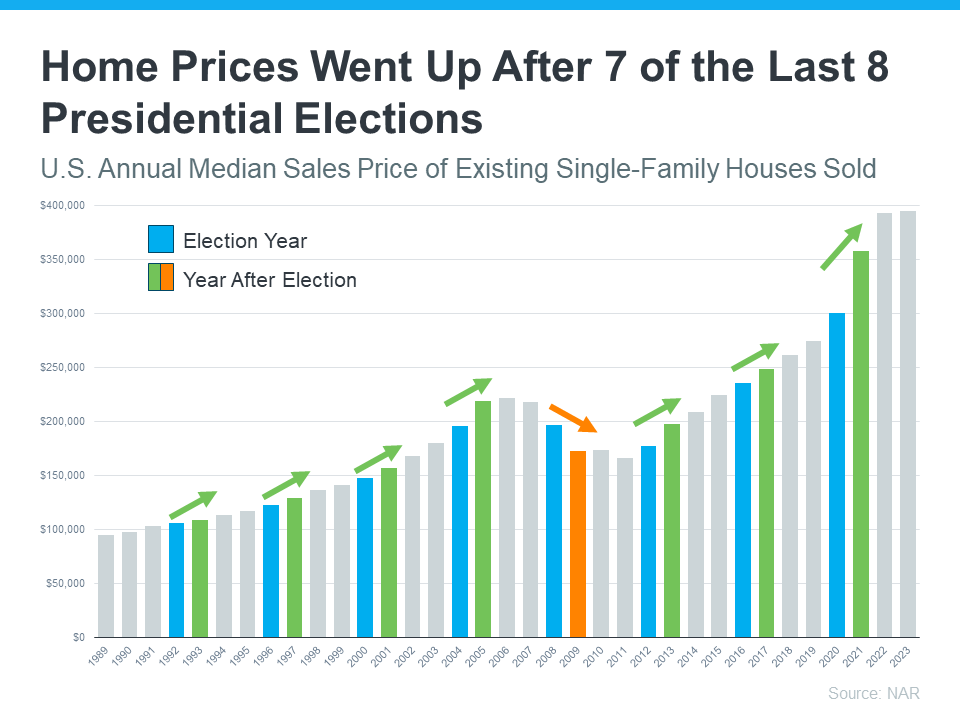The One with the Election
What happens to the housing market during an election year?
As the highly anticipated presidential election draws near, it's understandable for both homebuyers and sellers to feel apprehensive about how the outcome might influence their real estate goals. Some individuals may consider temporarily pausing their plans until the following spring to gain a clearer understanding of the market's trajectory. However, it's important to note that housing economists contend there's limited evidence suggesting elections directly impact home values.
What drives housing prices?
Home values are determined by a complex combination of factors, including available housing supply, demand for those homes, consumer confidence, and interest rates. This multifaceted formula leads to speculation about the role various factors may or may not play in the housing market. One such factor is election years. While presidential candidates emphasize their economic plans, economists generally agree that presidents have limited influence over a broad market like housing. However, it's not accurate to say that the president has no effect at all. Certain policy changes or new regulations can have an impact. Additionally, the president's stance on monetary policies can influence interest rates.
What History Shows:
If we analyze historical data, it can provide insights into how past elections have influenced the housing market and the trajectory of home prices. Since 1987, there have been nine elections and contrary to what many would expect, home price appreciation in those years actually outperformed market appreciation in the 28 non-election years. Typically the housing market experiences a temporary slowdown in the months leading up to an election due to consumer uncertainty, followed by a rebound once consumer’s gain greater confidence in the country’s direction.
Some economists argue that by looking at past data, there is no clear statistical evidence that one winning side versus the other has any impact on home prices. Other economists take a more holistic approach and recognize that uncertainty during the election season can impact and slow down sales as consumers temporarily await clarity on potential changes - However, both agree that historic data shows that the national housing market is likely to be resilient, with with possibility of short term hesitancy followed by a return to long-standing market trends.
Bottom Line:
When navigating the real estate market, particularly during election years, it is important for buyers and sellers to remain focused on their financial goals and avoid letting political concerns and election outcomes unduly influence their decisions. While it is natural to wonder how elections might impact the housing market, historically, we can find confidence in the fact that election years have not had a significant negative effect on home prices or the overall housing market.
It is important to remember that the housing market is influenced by a complex web of factors such as supply and demand, economic conditions, and local market dynamics. While political events may occasionally create short-term fluctuations in the market, these effects are often temporary and do not negatively impact the long-term trajectory of home prices.
Therefore, if you are considering buying or selling a home, it is important to consult with a knowledgeable real estate professional who can provide you with personalized advice based on your unique circumstances and financial goals! They will be able to analyze market conditions, help you determine the right time to buy or sell, and guide you through the process to ensure a successful real estate transaction, regardless of the political landscape.
If you are considering buying or selling a home this fall and have concerns about how the upcoming election may impact the market, don't hesitate to reach out for a more in-depth discussion!
